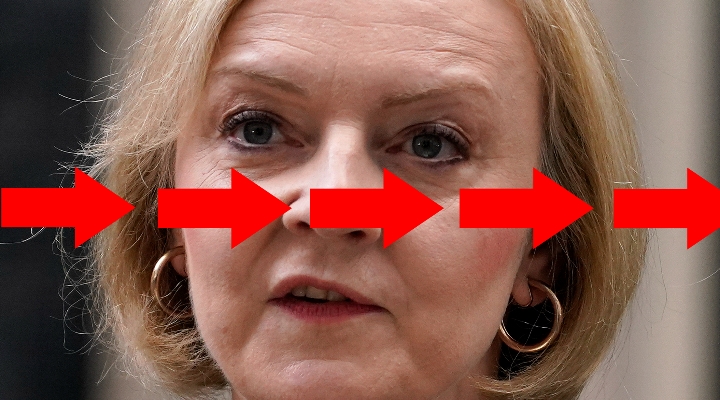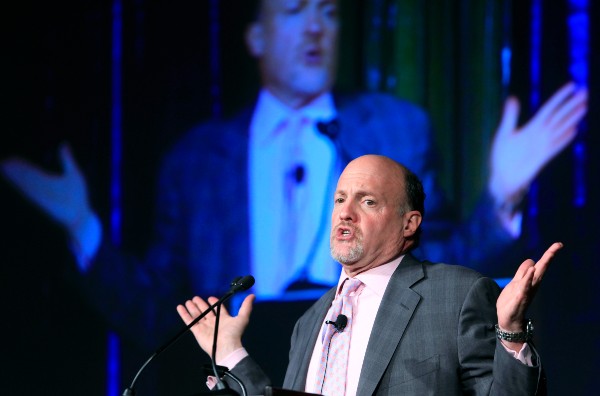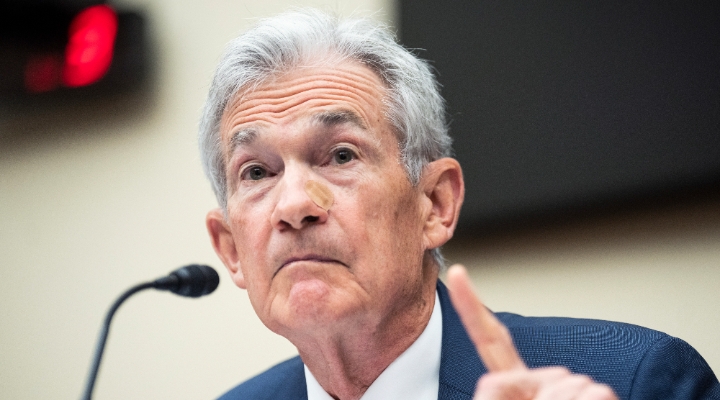
The New Twitter Era is Sinking In
Elon Musk has finally completed his $44 billion takeover of Twitter. The controversy surrounding the deal continues, with Musk reportedly firing a number of Twitter board members, including its chief executive, after taking charge. News reports suggest Twitter’s chief financial officer and top legal executive were escorted out of its San Francisco headquarters following the takeover. Musk, who changed his Twitter bio to “chief twit” earlier this week, tweeted “the bird is freed” after the deal completed. Musk calls himself a “free speech absolutist” and has been critical of some of the moderation policies used on the social media site. His not-too-cryptic tweet suggests he may now wind back some of these restrictions. Speculation now turns to the former president, Donald Trump, whose Twitter account was banned for spreading unsubstantiated claims about electoral fraud.
The Ye Brand Exodus Was Decisive and Swift
Musk might be a “free speech absolutist” but another billionaire has been counting the cost of thinking before opening his mouth. Ye, the rapper formerly known as Kanye West, has been embroiled in an explosive backlash after making anti-semitic comments and championing white supremacist slogans. Ye now claims he lost $2 billion in a day after almost all the brands he’s ever worked with took swift action to disassociate themselves from the star. They include Adidas, Balenciaga and Gap, all of whom have cancelled partnerships, endorsements, and advertising deals. He’s also been dropped by his longtime talent agency CAA, while a planned documentary has also been shelved. To add to the humiliation West was also escorted out of the head office of Skechers in Los Angeles, with the footwear company stating the rapper had arrived without invitation.
Rishi's Budget Gamble is a Big Bet
The "medium-term fiscal plan", which aimed to repair the damage done by the disastrous mini-Budget has been pushed back from October 31 to mid-November (after previously being brought forward) – and will now be upgraded to a full Autumn Statement. The two-week delay gives Rishi Sunak a chance to work through the chancellor’s proposals and agree on what spending cuts and tax rises are needed to balance the nation’s finances. Sunak may be hoping some breathing space will mean a marginally smaller black hole to fill, given the positive market reaction to his appointment, with the pound strengthening and gilt yields lowering. However, the delay means no one gets to hear a new plan until after November’s Bank of England meeting to set interest rates, of which we will hear more on Thursday when the Monetary Policy Committee issues its latest decision. Still, the cabinet looks happy.
It’s a Mixed Picture at Britain’s Banks
Higher interest rates are driving fatter profit margins at most of the UK’s high street banks. Barclays and HSBC published quarterly results this week that were well ahead of forecasts, with Barclays earnings exceeding £2 billion for the three month period. In both cases higher borrowing rates have helped boost revenues — with critics pointing out that banks have not been as quick to pass on interest rate rises to savers, further improving their bottom line. However, Lloyds has not fared as well, with profits dropping by a quarter over the same period. Lloyds blamed deteriorating economic conditions in the UK, with increased provisions made for defaults on loans and mortgages. Will the clamour for windfall taxes return? Bank bosses have rebuffed such calls, with HSBC pointing out that the sector pays more tax than other large companies.
Credit Suisse is Mid-Shocker
Credit Suisse has had another extremely difficult week. The Swiss bank, once a byword for corporate respectability and high-flying investment management, has found itself mired in various scandals, saddling it with huge losses. That led to concerns about the company’s financial stability, amid a revolving door of bank bosses and its share price halving this year. The latest CEO announced a recovery plan this week, which will involve 9,000 job cuts, a significant restructure, and a $1.5 billion capital injection from the Saudi National Bank. Its chairman described this latest overhaul as a “blueprint for success”, but the market reaction suggested investors disagreed, with shares down a further 13%. It remains to be seen whether Switzerland’s second biggest investment bank can turn its fortunes around and at long last regain the credibility and trust of investors.
Tech Stocks are Dipping
Old-school sectors like banking and oil may be riding high, but it has been a dreadful week for US tech stocks, including the companies behind Facebook, Instagram, Google, YouTube, Amazon and Spotify. Profits at Facebook parent Meta halved in the last quarter, effectively wiping $10 billion off Mark Zuckerberg’s personal net worth. Last year Zuckerberg was championing the company’s move into virtual reality as a way of driving growth at the company. To date this growth looks somewhat illusory, even when viewed through an expensive VR headset, with the company shedding investors, staff and investors. Meanwhile, growth slowed at Alphabet amid a slump in digital advertising, affecting both its Google and YouTube brands, the latter of which has also been hit by increased competition from TikTok. Margins at Spotify have also been squeezed by the slowdown in digital advertising, while Amazon is predicting lower sales this Christmas.
Dark Days are Ahead for Homeowners
At one point we were wondering whether house prices would ever fall. Now the question is how far and how long. Banks are usually the last ones to talk down the housing market, but this week Lloyds, the UK’s largest mortgage lender, predicted property prices could drop by between 8% and 18% next year. The Centre for Economic and Business Research is also factoring in a 8 to 10% fall. All this creates a horrible dilemma for first-time buyers, and those looking to move up the property ladder. Do they wait for lower prices but risk paying substantially higher mortgage rates? The last time house prices dropped was after the financial crash, where property prices fell by 15% in the year to Feb 2009, but recovered rapidly afterwards. But there are concerns conditions may be more like those seen in the early 1990s, where there was an extended housing market slump and homeowners faced negative equity and in some cases repossessions.
The Boot is Now on The Other Foot…
The FCA could face legal action from disgruntled savers, investors and borrowers if MPs pass an amendment to current legislation cancelling its immunity from civil lawsuits. At present the regulator has statutory immunity from civil liability legal cases, but a group of Scottish National Party MPs is looking to change this. They have tabled an amended to the Financial Services and Markets Bill, currently making its way through Parliament. If this is passed, the FCA could be sued if its work is deemed negligent or inadequate. Commentators say that this could open the door to a “flood” of claims from claims management firms about its conduct during previous scandals, such as British Steel, the collapse of London Capital & Finance, and Blackmore’s Bonds. It is usually the FCA doling out fines and enforcement action, and naming and shaming firms who fall below expected standards. How might it react to getting a taste of the same medicine?
…But the FCA is Still Coming for Greenwashers
Amid that story, the FCA may well ban asset managers from using terms like “green” and “sustainable” when naming and marketing their funds, unless they meet special criteria. In new rules set out by the watchdog, the FC says it wants to clamp down on fund managers exaggerating or making unsubstantiated claims about their environmental credentials. As part of these proposals the regulator is suggesting three new “sustainability labels” designed to give investors a clearer idea of what a fund does, and does not, invest in. Given the huge increase in money that has been flowing into ESG strategies in recent years it is hoped these proposals will result in robust rules that encourage the investment industry to start walk the walk, rather than just talking the talk.
Dyson Has Got Tongs Wagging
Just what we need in a cost of living crisis: Dyson is hoping to launch as many as 20 new hair-styling products in the next few years. Readers of a wash ‘n’ go disposition may be surprised to learn that his “supersonic” hairdryer currently retails at upwards of £329.00. And the marketing? Of a distinct iPhone nature, with “limited editions” selling for significantly more than “basic” models. Although Brexit-supporting billionaire entrepreneur and company founder James Dyson has received criticism for moving much of his operations to Singapore, Dyson has himself said the £500 million the company is investing into developing the new products will largely be spent on expanding its UK development sites. It already offers a range of hair straighteners and curling tongs, so what’s next? High-tech beard trimmers? Cutting-edge hair-dressing scissors? No doubt Dyson is hoping the company will become a more, ahem, perm-anent fixture in the beauty market.








.jpg)


















